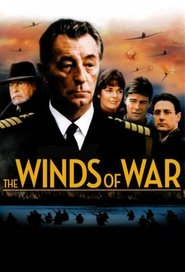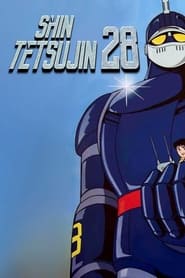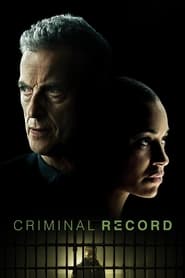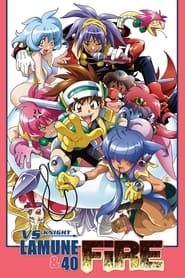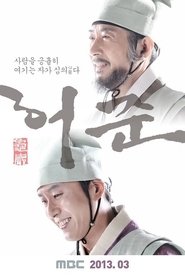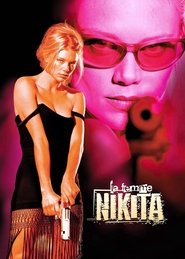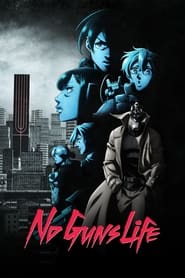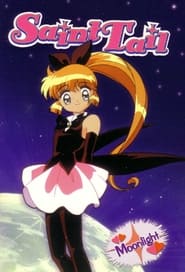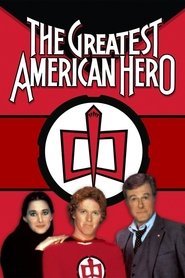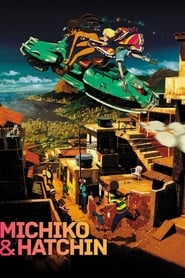Popular TV Series - Page 250
-
The Winds of War
1983
The Winds of War
1983
star 7.2Set against the backdrop of world events that led to the Japanese attack on Pearl Harbor in 1941, Victor "Pug" Henry is a career naval officer who, along with his family, learns to navigate the waters of his dangerous times in the late 1930s. -
The New Adventures of Gigantor
1980
star 7.2Shotaro Kaneda is a young boy whose dead scientist father created the giant robot Tetsujin 28 after realizing the chances of attacks from outer galaxies. Shotaro has possession of the only controller, kept in an attached case, which enables him to have direct command of the all mighty Tetsujin 28. If the controller goes into the hands of the enemy, this could lead Tetsujin 28 to fight for villains who want to destroy The Earth. Whenever peace in this world is threaten, Shotaro together with his friends, Dr. Shikishima, Detective Otsuka, must unleash the power of our metallic super hero. -
Music Box
2020
-
Criminal Record
2024
Criminal Record
2024
star 6.9In the heart of London, an anonymous phone call draws two brilliant detectives—a young woman in the early stages of her career and a well-connected man determined to protect his legacy—into a fight to correct an old miscarriage of justice. -
Mysterious Lotus Casebook
2023
star 7.8Li Lian Hua is a countryside doctor who travels dragging around a lotus tower. He accidentally becomes "famous" and gets pulled into the pugilistic world that he no longer wants to have any connections with. -
VS Knight Lamune & 40 Fire
1996
star 10Baba Lamunade is followed home by two strange peddler girls who give him a CD-rom game. After he beats "The Legend of Lamuness", the girls come out of his computer and bring him to DokiDoki Space. He is the third descendant of the hero Lamuness who must stop Don Genosai from resurrecting the great evil Abraham. Accompanied by PQ, his advisor robot, and Parfait and Cacao, he must pilot the Kaizer Fire mecha. However, he needs another pilot, and Da Cider is chosen as the second pilot. -
Shine
2025
Shine
2025
star 9.4Five young Thais resist the strict social norms of 1969, risking everything as their interwoven forbidden loves defy an intolerant world. -
Hur Jun, The Original Story
2013
star 3.5Drama depicts the dramatic life of historical figure Heo Joon, who wrote the oriental medical textbook "Donguibogam" and became physician for King Seonjo. -
State of Divinity
1996
State of Divinity
1996
star 8.2Ling-wu Chung, a senior student of the Wah Mount Sect, was not at all brilliant when he joined the Sect, but was soon taught to master the sword by a legendary swordsman Yeung. Chung’s master, Kwan, resented this and drove Chung away. In order to get hold of “Kwai Fa Bo Din”, the book on the most powerful martial art, Kwan diverts attention by secretly creating troubles everywhere. Chung, on the other hand, becomes the leader of the Hang Mount Sect by chance and falls in love with Kwan's daughter. When she betrays him, he turns to the daughter of the Devil Sect leader, and thus causes a love triangle between them. -
Çocuklar Duymasın
2002
-
La Femme Nikita
1997
La Femme Nikita
1997
star 7.4Nikita is a drug-addicted juvenile delinquent who was accused of killing a police officer in cold blood during an attempted robbery of a pharmacy. She is later arrested and sentenced to death by lethal injection, upon which she was secretly drugged by the government, faking her death. Nikita is then "recruited" by a secret government organization and transformed into a highly skilled assassin who cannot be traced. -
Beet the Vandel Buster
2004
star 7.3The story takes place in a fantasy world where humans have been suffering from the attacks of the demon-like Vandels. Humans can fight back by becoming a Vandel Buster, a paid monster and Vandel assassin. The protagonist of the story, Beet, is a young boy who becomes a Vandel Buster to be like his heroes, the Zenon Warriors. -
No Guns Life
2019
No Guns Life
2019
star 6.7Humans that have been physically altered and turned into dangerous weapons are known as the Extended. Juuzou Inui awakens as one of these weapons — with amnesia. But his job as an agent investigating the Extended leads to a mysterious child with Extended ties showing up at his office. Now Inui must keep the child away from street gangs and the megacorporation Berühren, and it won't be easy. -
Saint Tail
1995
Saint Tail
1995
star 7.2Saint Tail is a phantom thief magical girl manga and anime series. Originally a twenty-four part manga by Megumi Tachikawa, the story was adapted into an anime television series by producer Tokyo Movie Shinsha, with forty-three episodes and one short, broadcast by ABC. Tokyopop translated the manga series, and subtitled and partially dubbed the anime series. Video Games were released for the Sega Saturn and Sega Game Gear in Japan, and are considered collectors items by Saint Tail fans. The Tokyopop book summary states that it is "Robin Hood meets Sailor Moon!" -
The Greatest American Hero
1981
star 7.2The chronicles of teacher Ralph Hinkley's adventures after a group of aliens gives him a red suit that gives him superhuman abilities. Unfortunately, Ralph, who hates wearing the suit, immediately loses its instruction booklet, and thus has to learn how to use its powers by trial and error, often with comical results. -
Indéfendable
2022
-
Sound of the Sky
2010
Sound of the Sky
2010
star 7.7On the outskirts of the country of Helvetia rests the tranquil town of Seize. Upon its cobbled streets, citizens go about their daily lives, undisturbed by the increasingly tense military relations between Helvetia and the neighboring Roman Empire. It is under these circumstances that the 1121st platoon of the Helvetian army, stationed at the Clocktower Fortress in Seize, receives a new recruit in the young and spirited Kanata Sorami. Having joined the military to fulfill her dream of learning to play the bugle, she excitedly accepts the tutelage of the Sergeant Major, Rio Kazumiya, who happens to be a skilled trumpeter. Working alongside them are the aloof mechanic, Noël Kannagi, the feisty gunner, Kureha Suminoya, and the compassionate Captain Felicia Heideman; together, they experience the beauty of life in Seize and the lasting joy of a community that has persevered in spite of the crumbling world around them. -
The Richest Man in Game
2024
star 7.6Finding himself back in time 10 years ago, though technically an almost parallel world in 2009, Pei Qian got a system where he gets money to run his business. The funds for business and personal use are separated. After a set period, he can earn his personal funds according to how much his business funds he has left. The catch? Pei Qian earns more when he makes a loss in his business funds. Happily thinking how easy it would be, with many failed start-ups proving a point, Pei Qian founded his company Tengda and achieved financial freedom through the losses. Unfortunately, fate has other plans for him. -
The Serpent Queen
2022
The Serpent Queen
2022
star 7.4Considered an immigrant, common and plain, Catherine de Medici is married into the 16th century French court as an orphaned teenager expected to bring a fortune in dowry and produce many heirs, only to discover that her husband is in love with an older woman, her dowry is unpaid and she’s unable to concieve. Yet, only with her intelligence and determination, she manages to keep her marriage alive and masters the bloodsport that is the monarchy better than anyone else, ruling France for 50 years. -
Michiko & Hatchin
2008
Michiko & Hatchin
2008
star 6.8Hana is a nine-year-old girl who lives in constant fear of her abusive family; Michiko is a sexy woman who has just done the unthinkable: broken out of the impenetrable Diamandra Penitentiary. After Hana is whisked away by Michiko, who claims to be her mother, the duo sets forth on a high octane ride towards freedom. In the streets of Brazil and aboard Michiko's motorcycle, Hana and Michiko will look for Hana's long lost father, try to learn to co-exist and get along together, and stay one step ahead of the police and afro-clad Atsuko.
 Netflix
Netflix
 Amazon Prime Video
Amazon Prime Video
 Apple iTunes
Apple iTunes
 Apple TV Plus
Apple TV Plus
 Disney Plus
Disney Plus
 Google Play Movies
Google Play Movies
 Paramount Plus
Paramount Plus
 Hulu
Hulu
 HBO Max
HBO Max
 YouTube
YouTube
 fuboTV
fuboTV
 Peacock
Peacock
 Peacock Premium
Peacock Premium
 Amazon Video
Amazon Video
 The Roku Channel
The Roku Channel
 AMC+
AMC+
 AMC on Demand
AMC on Demand
 Kocowa
Kocowa
 Hoopla
Hoopla
 The CW
The CW
 Vudu
Vudu
 Starz
Starz
 Showtime
Showtime
 PBS
PBS
 Pantaflix
Pantaflix
 FXNow
FXNow
 Tubi TV
Tubi TV
 Kanopy
Kanopy
 Comedy Central
Comedy Central
 Crunchyroll
Crunchyroll
 Microsoft Store
Microsoft Store
 Redbox
Redbox
 Sun Nxt
Sun Nxt
 ABC
ABC
 DIRECTV
DIRECTV
 Crackle
Crackle
 Fandor
Fandor
 Plex
Plex
